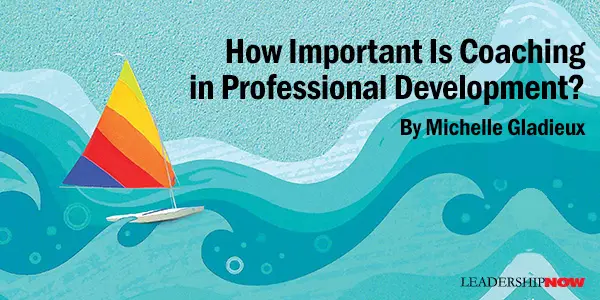 |
 |
12.28.22

How Important Is Coaching in Professional Development?
AS A LIFELONG communication skills coach, I was asked recently by one of my colleagues how important individual coaching attention is for a person to learn and grow at any stage of their career. Of course, this is sort of like asking a baker if bread is worth baking. I’ve seen many breakthrough moments when people from all walks of life set their sights on developing new thoughts, actions, and habits. So, I’m going to say coaching is pretty important, both when we’re kids and when we’re adults. Here’s why: none of us can see ourselves as others do. We often look right past our beautiful, natural gifts (and every one of us has them, although we haven’t all become aware of them). We also might gloss over some weaker points we’d benefit from addressing sooner rather than later. Looking outward from inside our bodies, we see out into the world but can’t observe the effects of our own energy and behaviors on others as easily as those who are paying attention can see us. In my book Communicate with Courage: Taking Risks to Overcome the Four Hidden Challenges, I illuminate obstacles that hold most of us back at some point in our lives and present methods of overcoming them. The “big four” in my experience include:
It’s often useful to ask others where they see us compensating in communication or in life rather than stretching to reach our potential. We can choose to open ourselves up to others and invite them to share their observations, feelings, and opinions about us and the way we interact as we move through the world. Sometimes that feedback comes from a mentor or in a formal coaching relationship, and other times it’s family, friends, or co-workers who can shine a light on a path forward if we make them feel safe to do so. One-on-one coaching (or executive coaching) is tricky territory. Some folks who want to share advice or questions for us to ponder don’t have our best interests at heart. It’s possible they may care more about themselves and what they get from the interaction than what we receive from the communication. Some people would have us believe they’re able to guide us fairly and capably, but they’re not qualified to do so or might be blind to their own limitations. So, buyer beware. Don’t be too quick to believe praise OR criticism unless you’ve thought through the coach’s skill and motivations. Choose someone to trust – which involves risk – and who you believe is:
I mentor many adults who didn’t have a role model in their youth and many who did. It is possible to nurture one’s own learning at any age and possible to find mentors if one is willing to do a few hard things, such as:
You asked for a sample goal. Here are a few that people in jobs ranging from nursing home administrator to mechanical engineer are working on this week: For a client who’s finding their voice – participate in every meeting you attend for one month; for one who finds it hard to focus – document and prioritize a task list, then share it with your boss to become more aligned. For the client who feels overwhelmed – create a self-care menu and use one entry daily; for one who manages a large team, document what wows you about your employees and where they need to improve to make giving feedback easier at performance review time. Some coaching clients receive recipes to try to help them give more resonant praise, apply more skillful delegation, or approach a conflict constructively. We all have different growth needs. We’ll always have growth needs. As long as we’re breathing and learning, it’s never too late to make positive change.  
Posted by Michael McKinney at 07:52 AM
|
BUILD YOUR KNOWLEDGE
 

How to Do Your Start-Up Right STRAIGHT TALK FOR START-UPS 
Grow Your Leadership Skills NEW AND UPCOMING LEADERSHIP BOOKS 
Leadership Minute BITE-SIZE CONCEPTS YOU CAN CHEW ON 
Classic Leadership Books BOOKS TO READ BEFORE YOU LEAD |